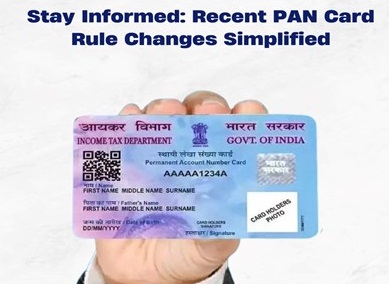The PAN (Permanent Account Number) serves as a crucial identification number for taxpayers, individuals, and businesses alike. Issued by the Income Tax Department, this alphanumeric code is essential for all taxable transactions, from TCS and TDS credits to income tax payments and investments.
Recently, amendments have been made to PAN card rules, including:
Mandatory PAN Quoting for High-Value Transactions:
- Cash deposits over Rs. 10 lakh in a savings account.
- Fixed deposits exceeding specified limits.
- Credit card payments above Rs. 1 lakh in cash or Rs. 10 lakh via any mode.
- Investments in debentures, bonds, shares, or immovable property beyond defined thresholds.
- Cash transactions involving bank drafts or cheques over Rs. 50,000.
This rule aims to enhance financial monitoring, curb tax evasion, and ensure tax compliance.
PAN-Adhaar Linkage:
- Section 139AA mandates all taxpayers to link their PAN with Aadhaar.
- The linkage streamlines transaction processes, combats fraud, and promotes compliance.
- Exceptions include residents of specific regions and certain categories of individuals.
Who Needs a PAN Card?
Individuals earning taxable income, businesses, trusts, and foreign nationals engaging in financial transactions within India require a PAN card.
Applying for a PAN Card:
- Both online and offline application processes are available.
- Online applications can be made through official websites like Protean (formerly NSDL) or UTIITSL.
- Form 49A caters to Indian residents and entities, while Form 49AA is for foreign applicants.
You can apply pan card at https://www.pan.utiitsl.com/newA.html





